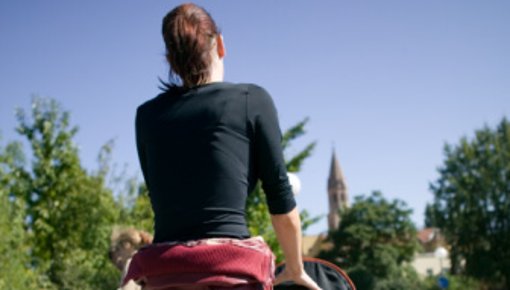I was desperate and tried lots of things
I ended up going to a dermatologist. She prescribed a cream with retinol in it. The cream made my skin really red and feel very tight, so I had to stop using it. Then I was given a solution to apply to my skin, but it didn't work for long. After a while my skin became very dry and red, which looked pretty awful. I also went to a tanning studio, but that didn't help either. I have very sensitive skin and just got sunburnt instead.
I was desperate to find something that would help, and tried out all sorts of lotions, creams and chemical peels myself. As a result I ended up getting eczema on my face. Using so many skin care products had damaged my skin's natural protective barrier. So I decided to go to a different dermatologist, who said it would be best not to do anything about my eczema. I found that strange at first. You generally expect dermatologists to give you something to put on your skin. Instead, he prescribed antibiotics for me. They had a very positive effect and my skin improved a lot. I had fewer pimples for around half a year to a year. I still keep some leftover antibiotics in a drawer now, in case my skin gets that bad again. It makes me feel more at ease. I'm quite worried that it could come back.
I also tried to cut down on sugary foods, but I probably didn't stick to that long enough. It didn't make any difference and I soon became frustrated. I don't really like meat and it definitely affected my quality of life. You really grasp at straws, you try everything out and mess your skin up, and it's expensive too.


